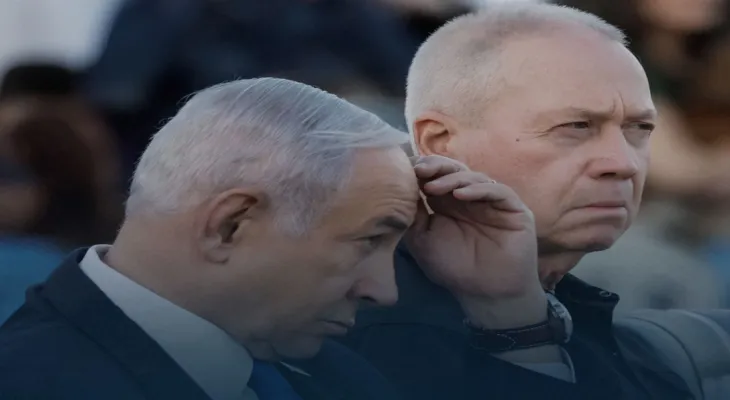Search here
Newspaper
Search here

Arab Canada News
News

Published: November 21, 2024
Details of the International Criminal Court's decision regarding Netanyahu:
The International Criminal Court (ICC) has issued an arrest warrant for Israeli Prime Minister Benjamin Netanyahu and former Defense Minister Yoav Gallant, accusing them of committing war crimes and crimes against humanity during military operations in Gaza.
Key accusations:
• Blockade on Gaza: The Israeli leadership has been accused of using the blockade as a means to starve the civilian population, which constitutes a war crime under international law.
• Indiscriminate targeting: The accusations included targeting civilians and critical infrastructure in Gaza, resulting in the deaths and injuries of a large number of innocents.
• Use of excessive force: Allegations have been made regarding the disproportionate use of heavy weapons in densely populated areas.
Reactions to the decision:
The Israeli side:
• Rejection of the decision: The Israeli government described the decision as "illegal and biased." The Netanyahu office confirmed that Israel does not recognize the jurisdiction of the International Criminal Court.
• Internal criticisms: Some Israeli officials criticized the court and accused it of using "double standards" aimed at undermining Israel's legitimacy.
• Media escalation: Israeli ministers and officials, such as Itamar Ben Gvir, described the decision as "a political attack against Israel."
Supporting countries of the Palestinian cause:
• Welcoming: Many human rights organizations and Palestinian leaders welcomed the decision, considering it an important step towards achieving justice for the victims of Israeli wars.
• Hamas: Described the decision as a victory for international justice, calling for the follow-up on its implementation to ensure accountability for those responsible for the crimes.
Al-Shorouk Gate.
International reactions:
• The international community: International reactions were mixed, with some European countries supporting the idea of international accountability, while others remained silent.
• The United States: Traditionally, Washington opposes any actions against Israel at the International Criminal Court and may criticize the decision or attempt to indirectly hinder it.
Challenges to implementing the decision:
• Lack of Israeli cooperation: Israel is not a member of the International Criminal Court and refuses to cooperate with its investigations.
• Diplomatic protection: Allies of Israel, such as the United States, may intervene to prevent the execution of the arrest warrant.
• Practical execution: The biggest challenge lies in how to arrest prominent figures such as Netanyahu under the security and political protection surrounding them.
The decision represents a more symbolic legal and diplomatic step rather than an immediate executive action, but it reinforces international calls for accountability for crimes against humanity.
Comments